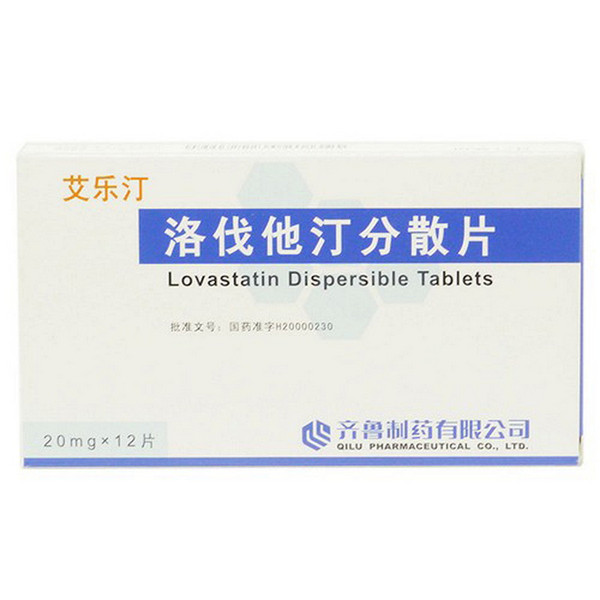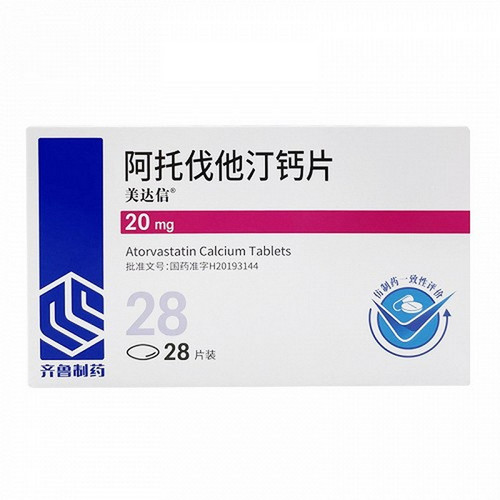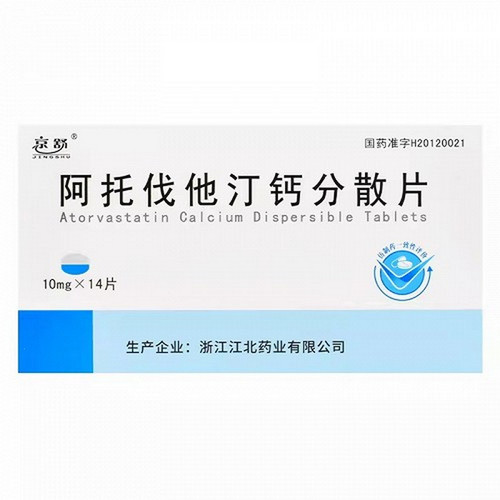Product Overview
[Drug Name]
Generic Name: Lovastatin Dispersible Tablets
Trade Name: Alectin
English Name: Lovastatin Dispersible Tablets
Chinese Pinyin: Luofatating Fensan Pian
[Ingredients]
The main ingredient of this product is lovastatin. Its chemical name is: (S)-2-Methylbutanoic acid-(1S,3S,7S,8S,8aR)-1,2,3,7,8,8a-hexahydro-3,7-dimethyl-8-{2-[(2R,4R)-4-hydroxy-6-oxo-2-tetrahydropyranyl]-ethyl}-1-naphthyl ester. Molecular formula: C24H36O5, Molecular weight: 404.55
[Properties]
This product is a white tablet.
[Indications]
For the treatment of hypercholesterolemia and combined hyperlipidemia.
[Dosage and Administration]
The usual adult oral dose is 10-20 mg once daily, taken with dinner. The dose can be adjusted as needed, but the maximum dose should not exceed 80 mg per day.
[Adverse Reactions]
1. The most common adverse reactions of this product are gastrointestinal discomfort, diarrhea, and flatulence. Others include headache, rash, dizziness, blurred vision, and taste disturbances. 2. It may occasionally cause a reversible increase in serum aminotransferases. Therefore, liver function should be monitored. 3. Rare adverse reactions include impotence and insomnia. 4. Rare adverse reactions include myositis, myalgia, and rhabdomyolysis, manifesting as muscle pain, fatigue, fever, and accompanied by elevated blood creatine phosphokinase and myoglobinuria. Rhabdomyolysis can lead to renal failure, but this is rare. Concomitant use of this product with immunosuppressants, folic acid derivatives, niacin, gemfibrozil, and erythromycin may increase the risk of myopathy. 5. Hepatitis, pancreatitis, and allergic reactions such as angioedema have been reported.
[Contraindications]
1. Contraindicated in patients allergic to lovastatin. Use with caution in patients allergic to other HMG-CoA reductase inhibitors. 2. This drug is contraindicated in patients with active liver disease or persistently elevated serum aminotransferase levels for unknown reasons.
[Precautions]
1. Regularly check blood cholesterol and creatine phosphokinase during treatment. Blood aminotransferase levels may increase with this drug. Patients with a history of liver disease should also have their liver function tests regularly monitored. 2. If serum aminotransferase levels rise to three times the upper limit of normal, or if serum creatine phosphokinase levels significantly increase, or if symptoms of myositis or pancreatitis occur during treatment with this drug, this drug should be discontinued. 3. If hypotension, severe acute infection, trauma, metabolic disturbances, or other conditions occur while using this drug, be aware of the potential for renal failure secondary to myolysis. 4. In patients with renal insufficiency, the dose of this drug should be reduced. 5. This drug should be taken with food to facilitate absorption. 6. Dietary therapy is always the primary treatment for hyperlipidemia; combined with exercise and weight loss, it is superior to any other form of drug therapy.
[Use in Special Populations]
Precautions for Children: Use in children is limited, and long-term safety has not been established. Precautions during pregnancy and lactation: Not yet available.
Precautions for the elderly: Dosage adjustment is required for elderly patients based on liver and kidney function.
[Drug Interactions]
1. Concomitant use of this drug with oral anticoagulants may prolong the prothrombin time and increase the risk of bleeding. 2. Concomitant use of this drug with immunosuppressants such as cyclosporine, azithromycin, clarithromycin, erythromycin, danazol, itraconazole, gemfibrozil, and niacin may increase the risk of myolysis and acute renal failure. 3. Colestipol and cholestyramine may reduce the bioavailability of this drug; therefore, this drug should be taken 4 hours after the former.
[Pharmacological Actions]
This drug competitively inhibits hydroxymethylglutaryl-CoA reductase, the rate-limiting enzyme in cholesterol synthesis, in vivo. This reduces cholesterol synthesis and increases low-density lipoprotein receptor synthesis. Its primary site of action is in the liver, resulting in lower blood cholesterol and low-density lipoprotein cholesterol levels, thereby preventing and treating atherosclerosis and coronary heart disease. This product also lowers serum triglyceride levels and increases high-density lipoprotein (HDL) levels. In mice, doses 3 to 4 times the human dose were carcinogenic, but no increase in tumor development was observed in large-scale, long-term clinical trials in humans. Existing studies have not found this product to be mutagenic.
[Storage] Store in a dark, airtight container.
[Specification] 20 mg
[Packaging] Aluminum-plastic packaging, 20 tablets per box, 20 mg x 12 tablets per box
[Expiry Date] 24 months
[Approval Number] National Medicine Standard H20000230
[Manufacturer] Company Name: Qilu Pharmaceutical Co., Ltd.






